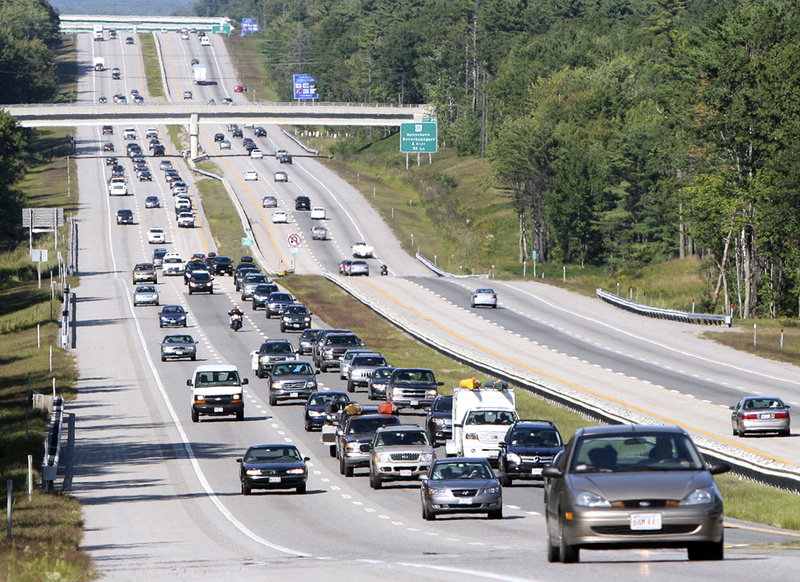PORTLAND — The Press Herald’s Feb. 3 editorial regarding the Maine Turnpike Authority’s review by the Office of Program Evaluation and Government Accountability noted, “The concern is not what’s been done; it’s what will be learned.”
Those who have read the full report learned that, by and large, OPEGA found the MTA to be a well-run organization. However, OPEGA also identified areas where the MTA could make some improvements.
That’s where we learned a few things.
During the course of the review, the MTA came to understand that some operations, policies and procedures needed to be updated, applied more consistently or curtailed. The result is a detailed action plan crafted by the MTA – and endorsed by OPEGA – that deals specifically with the audit’s concerns.
The OPEGA report reads, “Not all of the (MTA’s) proposed actions exactly mirror OPEGA’s recommendations, but in our opinion they are reasonable, both in scope and time frame, for addressing the issues we have raised.
“If effectively implemented, they should strengthen MTA’s processes, begin to substantially redefine the relationship with (their consulting engineer), and bring additional transparency to MTA’s budget and expenditures.”
Among the changes the MTA has already begun working on are increasing the size of its in-house engineering staff to assume more construction inspection and project oversight responsibilities, thus being less reliant on outside consultants; developing new contract management software and procedures; and implementing more stringent travel, meal and general purchasing policies.
MTA’s recognition of the need to change and our prompt action in doing so were lauded by OPEGA.
“We note that some actions being taken by MTA go beyond the scope of OPEGA’s recommendations and will provide for additional improvements and efficiencies,” the report also notes. “We see this as an indication that MTA is truly interested in fully integrating the changes in a way that impacts MTA’s culture and makes it a stronger organization.”
Simply stated, that’s the Maine Turnpike Authority’s goal, which is why we’ve endorsed and embraced the OPEGA report. And it’s why we urge the Government Oversight Committee to do the same.
The MTA also suggests that OPEGA monitor our progress and report back at a future date so that the GOC and all other parties interested in MTA operations can be assured that the MTA has satisfactorily performed all required management actions.
We’ve also learned that a few questionable choices can overshadow a lot of very good work. For example, as the OPEGA report notes, over the past several years the MTA has been collaborating with the Maine Department of Transportation on a variety of projects that have common interest.
In fact, the MTA has been contributing about $6 million per year to help Maine DOT fund interchange and intersection upgrades in the turnpike corridor; service plaza and train station construction projects; rehabilitate bridges, and so on. We’ve also been paying $2.4 million in annual debt service on $34 million in bond proceeds given to Maine DOT in 1996.
What’s more, the MTA has made a commitment to contribute up to $3 million annually for the next 30 years to help underwrite Maine DOT’s share of the projected $506 million it will cost to repair, replace and maintain the three bridges connecting Kittery and Portsmouth, N.H. And there are other things we’d like to do to make the turnpike a safer, more efficient highway, such as implementing open-road tolling.
As your editorial stated, “All one must do is travel, at speed, through New Hampshire’s new tollway on I-95, only to reach a bottleneck at the York plaza, to see that this state remains behind the times.”
Believe me, it’s not for lack of trying on our part.
We’re more than ready to introduce the same open-road tolling system in York. In fact, after we undertook a lengthy public participation process, a detailed and exhaustive report was submitted long ago to the U.S. Army Corps of Engineers requesting a formal start to the process.
But until we can navigate through the costly and time-consuming permitting process, turnpike customers – the vast majority of whom want open-road tolling in York – will be stuck with the poorly situated and antiquated system we currently operate.
In the meantime, we are moving forward with implementing open-road tolling at our New Gloucester toll plaza, where engineering safety guidelines are met and no special permitting is required.
That project will get under way this year and is scheduled to be open for Memorial Day 2012.
– Special to The Press Herald
Copy the Story LinkSend questions/comments to the editors.



Success. Please wait for the page to reload. If the page does not reload within 5 seconds, please refresh the page.
Enter your email and password to access comments.
Hi, to comment on stories you must . This profile is in addition to your subscription and website login.
Already have a commenting profile? .
Invalid username/password.
Please check your email to confirm and complete your registration.
Only subscribers are eligible to post comments. Please subscribe or login first for digital access. Here’s why.
Use the form below to reset your password. When you've submitted your account email, we will send an email with a reset code.